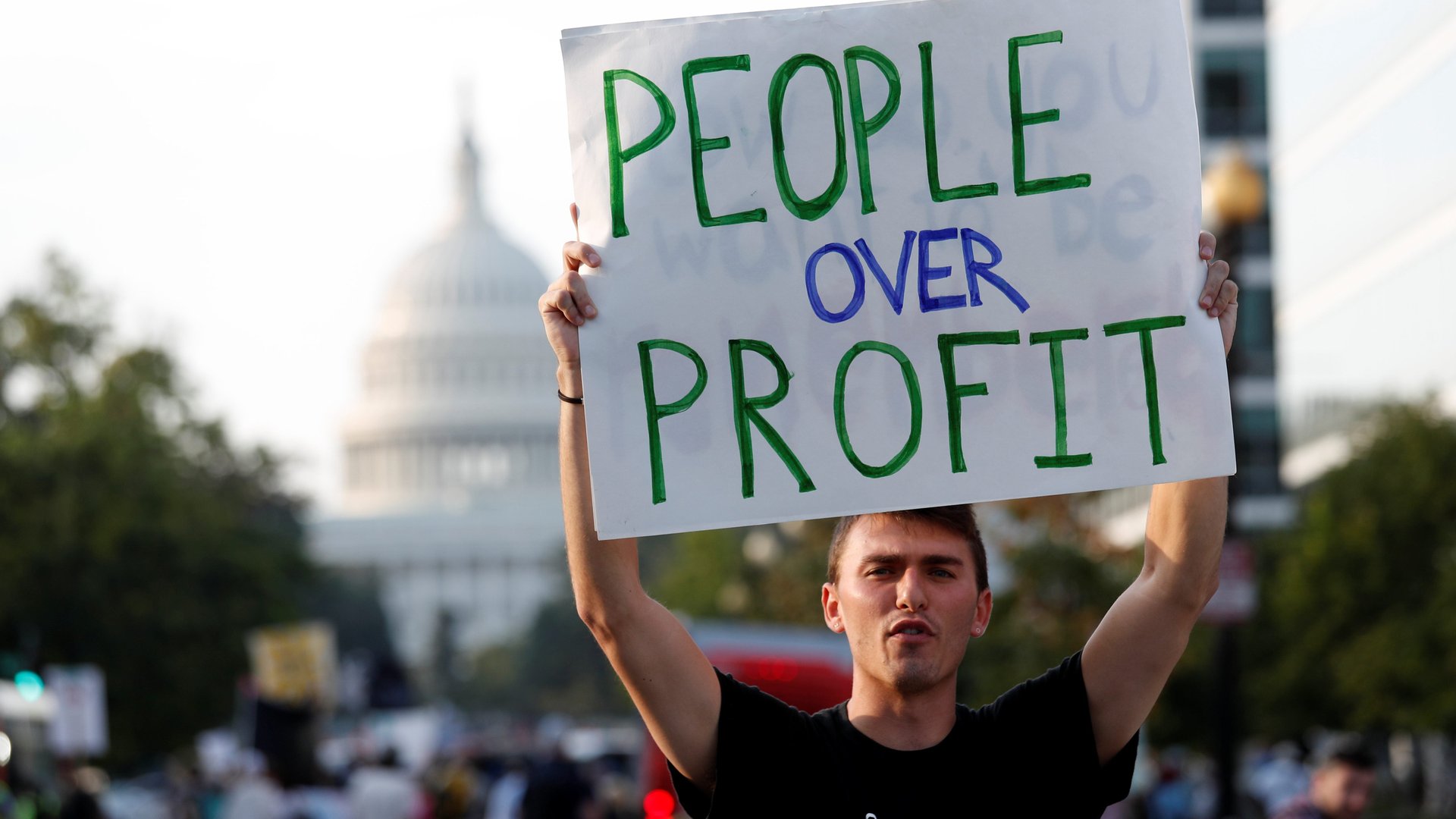When it comes to serving fossil-fuel clients, who holds firms to account? Their employees
As world leaders return from the COP26 meeting in Glasgow, everyone has a job to do on climate change. Clear policy signals are still buried in politics, but we can hope that a pricing mechanism to reset the markets can emerge. Until then, though, who will hold business and industry to account?


As world leaders return from the COP26 meeting in Glasgow, everyone has a job to do on climate change. Clear policy signals are still buried in politics, but we can hope that a pricing mechanism to reset the markets can emerge. Until then, though, who will hold business and industry to account?
It won’t be shareholders. Yes, investors are becoming more active, but signals from the markets, lacking a price on carbon, will continue to confuse. Consider Daniel Loeb’s call to break up Shell into two parts, one to save us with alternative energy, and one to extract every penny from the fossil-fuel business model that is sinking us. Loeb believes separating the fossil-fuel business will allow Shell to focus on returning cash to shareholders. He is agnostic about the outcome when it comes to the planet.
But outside pressure isn’t the only way to motivate boards and executives. Today, a more promising voice comes directly from inside the business: those who actually do the work.
Employee activism at McKinsey and beyond
In late October, the New York Times reported that more than 1,100 McKinsey employees and associates were calling for their company’s leaders to rethink whether, or how, to serve the many fossil-fuel companies in the firm’s portfolio. A letter they had sent to the consultancy’s management in April posed a set of connected questions and concerns: fundamentally, what would it mean to take the company’s own statement of purpose literally?
“We, the undersigned, are ready for McKinsey to fully embrace its purpose ‘to help create positive action, enduring change in the world,’ through climate action. The climate crisis is the defining issue of our generation. Our positive impact in other realms will mean nothing if we do not act as our clients alter the earth irrevocably.”
The consultants who signed this letter are challenging the company to dig deeper into the nature of client relationships. They ask, should McKinsey, one of the most influential agents in boardrooms and executive suites, serve heavy-emitting industries at all? And if so, what is the goal of assignments the strategy firm should, or will, undertake for big contributors to climate change?
These employees offer a sign of things to come, and a window into controlling carbon emissions when the key lever sits at a remove from the action. They take issue not with McKinsey’s own emissions, which are measurable but minimal; it’s the pollution of the clients the firm influences, supports, and enables, that matter.
This is what the climate geeks call “scope 3” emissions. In consulting, as well as finance, it’s all about scope 3.
Chipping away at support for the fossil-fuel industry
Consulting is estimated to be a nearly $65 billion-a-year business in the US—and touches every industry across the planet. Financial services, including real estate and insurance, are estimated to exceed 20% of US GDP. The power of these sectors cannot be underestimated.
Banks have long been criticized for financing carbon-intensive industries like coal. Today, a growing number of funds and endowments are choosing to defund fossil fuels, but it doesn’t stop there. Banks are called to consider the real environmental costs of what they finance—in essence, to take the cover off of their credit and investment portfolio. Citibank, for example, has set long-term “net zero” goals for its entire portfolio. CEO Jane Fraser states, “Net zero means rethinking our business and helping our clients rethink theirs. For banks, what some don’t realize is that net zero includes not just our own operations but also our core business impacts…” In other words, the real challenge is about what the company enables, not just what it directly controls.
McKinsey’s CEO, Bob Sternfels, publicly responded to the critique from his own employees, pointing to the reality of an economy still 80% dependent on fossil fuels—and strong demand for strategic advice and operating support from clients eager to climb onto the net-zero bandwagon.
And yet, questions remain: What are the real costs, in planetary terms, of a client doing what it does—and enabled by a consultant or investor to do it even more efficiently?
Heretofore, when boards and executive teams—and those who advise and finance them—valued the enterprise, trying to account for the downstream costs was viewed as too complex, if not unnecessary. This has begun to change. Yet our research at the Aspen Institute finds that finance teachers at business schools are wary of fresh thinking about hard-to-measure externalities, without strong signals from prospective employers who seem wedded to old measures of value.
The conversation at the proverbial water cooler inside these employers is more dynamic; it connects the employers’ stated purpose, governance norms and decision rules with the need for entirely new measures of business value.
When employees offer a window into their own place of business, things can get pretty interesting. The McKinsey letter was kept quiet for six months, an eternity by social media standards, but it signals the domain of professional services is opening up to greater scrutiny—and potential.
With the planet on fire, we need these stories to know that change is both possible and underway. The next steps rely on those who know their companies intimately. Employees are equipped to reach deep into this moment to assess goals and intentions, and to identify what is holding us back from meeting the new standards we so urgently need to uphold.
Judy Samuelson is executive director and founder of the Aspen Institute’s Business and Society Program, and author of “The Six New Rules of Business: Creating Real Value in a Changing World.”